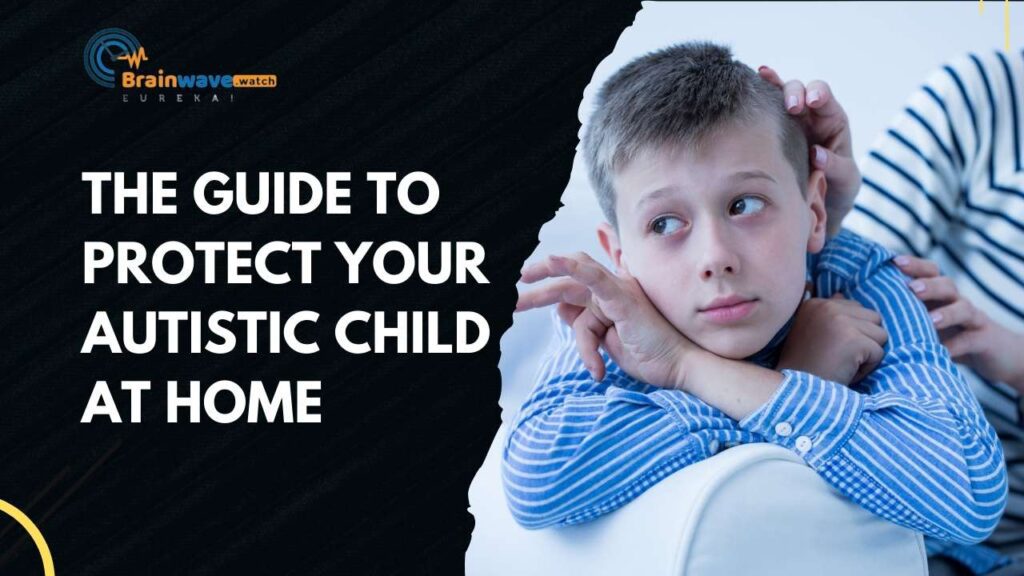Having a child with autism can be a difficult, frustrating and frustrating experience. While there is no “cure” for autism, there are many ways to help your child live the best life possible. In this article, we’ll explore the most common parenting pitfalls that parents of children with autism face so that you can avoid them in your own life!
Avoid setting unrealistic goals for your child.
It’s important to keep in mind that your child may not be able to do the same things as other kids their age. This is a good thing because it means they’re learning at their own pace and aren’t held back by expectations from others.
If you set unrealistic goals for your child, it could cause frustration and anger. It’s also important not to compare them with other children or make them feel bad about themselves because they’re not achieving what everyone else can do right away!
Do not let yourself sink into depression or anxiety.
- Depression and anxiety are not the same things.
- You can find help if you’re feeling depressed, anxious, or stressed.
- The first step is to talk to someone who cares about you and who understands how these feelings are affecting your life. You may also want to consider seeing a therapist or psychologist who specializes in working with children and families dealing with autism spectrum disorder (ASD).
Don’t keep your child from having fun in life.
- Do not be afraid to let your child have fun. Fun is essential for kids with autism, and it can help them develop social skills and confidence.
- Examples of activities you can do with your child include:
- Playing board games together or watching movies together
- Creating art projects together (this is especially good if your child is interested in the drawing)
Do not neglect your relationship with your spouse (if you have one).
If you have a spouse, make sure that you don’t neglect your relationship with them. Your spouse is an important part of your life and needs to be treated with respect and dignity. You can help by talking about what’s going on at home, being understanding of their feelings, and helping out when needed.
If there are any issues in the marriage because of autism or another condition like ADHD or dyslexia (or any other disability), it’s important to address them quickly before they grow into bigger problems that may cause stress in the family unit as well as strain on resources such as finances.
Do not be afraid to ask for help with caring for your child.
You should ask for help from family, friends, and neighbors. Ask your child’s teachers and therapists to keep an eye out for any signs of neglect or abuse.
It’s also important to talk with the pediatrician about taking care of your child at home so that you can get a better handle on their health care needs.
Lastly, try connecting with local autism organizations or foundations in your area—they may be able to provide valuable resources that could make all the difference when it comes time for caring for someone with autism!
Avoid living with too much stress.
Stress is a major cause of anxiety and depression, which can have a negative effect on your child’s health. Stress also makes it harder to be patient with your child, spouse, or family members.
If you’re experiencing too much stress in your life right now (including work-related or personal issues), try these strategies:
- Take time for yourself each day—even if it’s just 15 minutes of quiet reflection before bedtime.
- Set aside sometime each week so that you can relax by doing nothing at all but being with people who make you feel good about yourself. This could be an evening meal with friends or family members who love spending time together; taking an afternoon off from work; having a massage at the spa; going out for ice cream after work; walking around town without any destination in mind—whatever works best for YOU!
Don’t get discouraged if you don’t see improvement immediately.
It’s important to remember that you can’t expect your child’s behavior to change overnight. It takes time and effort, but patience is key.
Don’t give up too quickly if your child hasn’t improved in the first few weeks or months, especially if they don’t respond well to therapy or behavior modification techniques (which are often used in combination with medication).
If you’re struggling with how long it will take for your child’s autism symptoms to improve, one thing I recommend doing is asking for help from other parents who have been through this process before—and making sure you get plenty of rest along the way!
Read also: Which Interventions Reduce Anxiety in Autistic People?
Avoid pushing your child to always be more independent.
You should avoid pushing your child to always be more independent than they are ready for. In fact, the best thing you can do for your autistic child is just let them be who they are and help them learn how to deal with their own emotions, even if that means holding back on trying to help them become more self-sufficient.
If you push too hard and make it seem like there’s a bigger role in life that needs filling or doing, it can cause anxiety and stress in some children who have autism.
Don’t assume that all kids with autism are the same.
If you’re new to the autism spectrum, it can be tempting to think that all kids with autism are the same. But this couldn’t be further from the truth. There are many different types of autism and each child with autism is unique in their own way. Your child may seem like they have a lot in common with other kids in their playgroup or at school, but don’t forget: every child has their own set of strengths and weaknesses!
Don’t compare your child’s abilities or needs with those of other children—it won’t help them learn anything from those experiences (and could make things worse).
Instead, try talking about what makes your family unique as a whole, which will allow everyone involved in raising this little one to know what works best for them without comparing themselves to anyone else at all!
Do not assume that your child can’t communicate with you.
You may think that your child can’t communicate, but it’s important to remember that this is not the case. Many children with autism have different ways of communicating than their peers.
They may use hand gestures or facial expressions instead of words, for example. It’s also important to understand the meaning of what they are saying.
For example, if your child says “Mama” when you ask him how he feels and you respond by asking if he wants a cookie (which would be an acceptable response), then this means something completely different than if your child said, “I’m hungry!”
This means that parents need to learn how to listen carefully and not assume they know exactly what their child wants without asking them directly!
Read also: How to Deal with Autism Behaviour Problems
You have a lot of tools and strategies available to help you avoid these pitfalls and live a happy
If you’re new to the world of autism, it can be hard to know where to start. There are a lot of resources available, but they might not be as easy or convenient as they could be.
For example, if your child has autism and you don’t have any friends with children who have the same condition, it can be hard for you to connect with other parents who are like-minded and share similar experiences.
There are also many books on autism available in print or online that can help guide parents through their journey into this world.
Both parents of children who have been diagnosed with autism and parents of children who aren’t sure yet whether they do or don’t have one at home (but would still like some tips).
You may also want someone around who understands what goes through your mind when dealing with this type of disorder: maybe a friend from work who knows how stressful raising kids can get.
Or maybe even just someone else who wants more details about how things go down between parents trying desperately hard every day because life won’t stop until then?
Final Thoughts
The best thing you can do for yourself and your child is to feel comfortable with your diagnosis, understand what it means, and take advantage of all the resources available to help you live a healthy life. You deserve that after everything you’ve been through!







